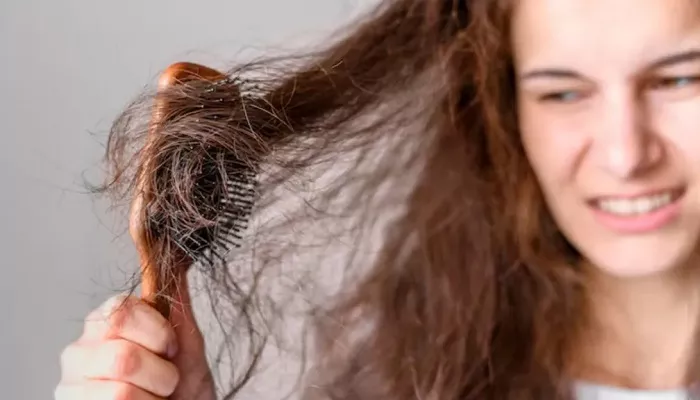Hairfall in your 20s or 30s may come as a surprise—but it’s becoming increasingly common, especially among young Indians. No longer limited to older adults, hair thinning and hair loss now affect both men and women in their early years, often driven by everyday lifestyle habits.
A 2024 study in the International Journal of Trichology reported that over 90% of Indian women experiencing hair thinning also showed signs of advanced hair loss and underlying health issues such as PCOS and high cholesterol. Another study revealed that nearly 58% of Indian men aged 30–50 were already showing early signs of male-pattern baldness.
So, what could be triggering hairfall at such a young age? Experts point to five key factors that often go unnoticed:
Ignoring Hormonal Health
Hormonal imbalances—especially conditions like PCOS and thyroid disorders—are among the leading causes of early hairfall in women. These conditions often go undiagnosed until noticeable symptoms like thinning hair emerge.
Hair health advice: If you’re noticing unusual hair loss, it’s crucial to consult a healthcare professional for proper diagnosis and treatment, rather than relying solely on topical solutions.
Lack of Physical Activity
A sedentary lifestyle affects more than your waistline. Inadequate physical activity reduces blood circulation and oxygen supply to hair follicles, weakening them over time. It can also contribute to oily or flaky scalps, aggravating hair health issues.
What to do:
Aim for at least 30 minutes of movement each day—like walking, yoga, or cycling.
Avoid prolonged sitting; take short breaks to move around.
Skip extreme workouts that may disrupt hormonal balance.
Poor Nutrition
Your hair reflects what’s on your plate. Since hair is primarily made of protein (keratin), deficiencies in protein, iron, zinc, or vitamins D and B12 can lead to weak, thinning strands.
Include protein-rich foods like eggs, legumes, fish, and lean meats.
Eat a variety of fruits, leafy greens, nuts, and seeds.
Avoid crash diets and processed foods, which can cause nutrient imbalances.
Damaging Haircare Habits
Daily grooming routines can unknowingly harm your hair. Heat styling, tight hairstyles, and rough brushing create long-term damage to hair follicles.
What to change:
Be gentle while detangling or styling.
Limit use of hot tools like straighteners and dryers.
Avoid tight ponytails or buns that tug at the roots.
Wash your scalp regularly with a mild shampoo to prevent buildup.
Stress and Lack of Sleep
High stress and inadequate sleep raise cortisol levels, leading to telogen effluvium—a condition where hair falls out more quickly than it regrows. This is increasingly common in younger adults juggling careers, academics, and social pressures.
Improve your routine:
Practice stress-relief techniques such as meditation, journaling, or spending time offline.
Prioritise 7–8 hours of quality sleep each night.
Recognise that rest is not a luxury—it’s essential for your body, mind, and hair.
If you’re noticing early signs of hair loss, don’t panic—but don’t ignore it either. Making small but consistent changes in your lifestyle and self-care can go a long way in protecting and improving your hair health for years to come.
Related Topics:
- Topical Hair Loss Treatments Market to Hit $2.38B by 2031
- Tight Hairstyles May Cause Hair Loss, Experts Warn
- Top Hair Growth Products for Men Backed by Experts


